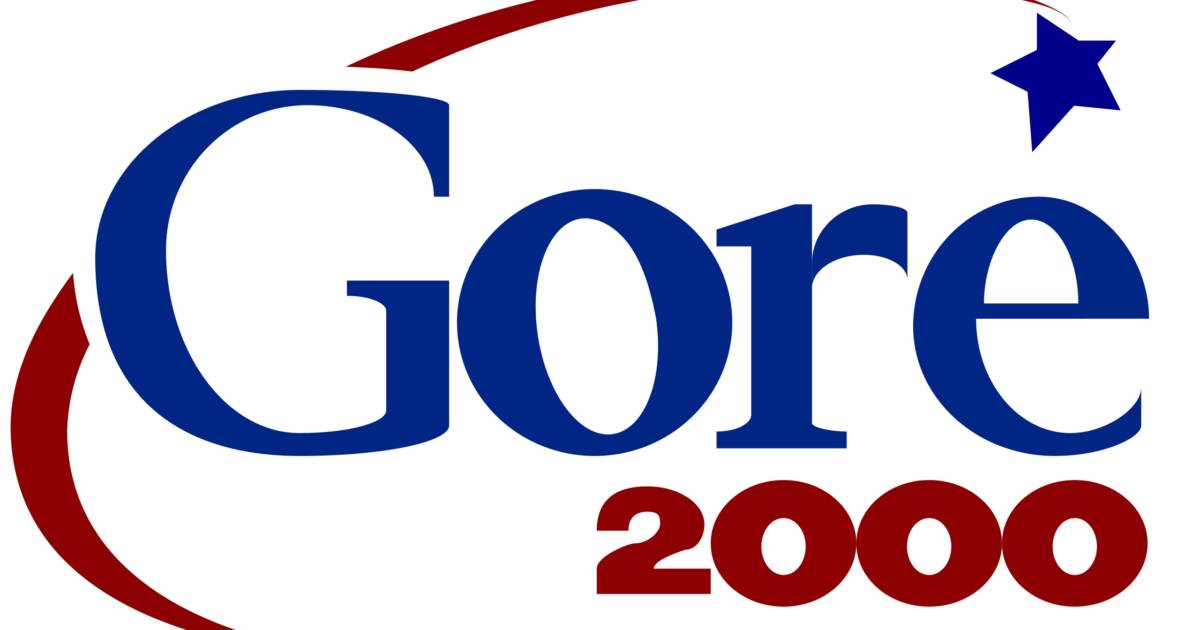In 2000, Vice President Al Gore did something shocking and unprecedented in modern politics, at the time: On November 7, 2000, Gore conceded, then hours later called George W. Bush to retract his concession. At the time, Bush’s lead in Florida had narrowed to under 600 votes, and was shrinking further. If you want to talk about conspiracies and stolen elections, here’s one for the books.
Florida’s law required an automatic machine recount, with a margin of 0.01 percent. Florida’s governor, Jeb Bush, was the brother of the Republican candidate, and Secretary of State Katherine Harris was his state campaign chair. Florida’s Attorney General Bob Butterworth was Gore’s campaign chair. The machine recount left Bush’s lead at 327 votes in a state that would decide the race.
Ballot security, methodology and what “counted” was much less developed back in 2000 than today. The term “hanging chad” came into the nation’s vocabulary, describing a not-fully-punched card ballot that may have been cast for Gore, or Bush, or Pat Buchanan. Harris wanted to certify the election on November 14, and was overruled by the State Supreme Court, which directed that hand recounts proceed in four contested counties. A flurry of competing lawsuits hit the courts.
On December 12, the Supreme Court ruled in Bush’s favor that the hand recounts violated the 14th Amendment because Florida didn’t have a strong procedure for counties to follow in hand recounts, while county standards were varied and inconsistent. The Court ruled that since there was no way for Florida to complete a “new” recount properly by the “safe harbor” deadline for electors to be chosen for the Electoral College, which met on December 18, the results would stand and be certified. Conservative Justices Antonin Scalia and Clarence Thomas ruled with the 5-4 majority in halting the hand recounts.
Al Gore lost the 2000 election by 327 votes in a single state, and a single Supreme Court Justice’s decision. He was Vice President of the United States, and several Democrats in Congress raised objections to the electors in Florida. Federal law required a Senator to also object in order for the objections to be formally considered. Al Gore had the best case in modern history to gather Senators to his cause. But he didn’t. The New York Times described the session:
So Mr. Gore, who was presiding in his role as Senate president, slammed down the gavel to silence them and rule their objections and parliamentary maneuvers out of order.
It’s ironic that Gore certified the election for Dick Cheney to become Vice President, and Liz Cheney, his daughter, co-chaired the January 6th Special Committee that highlighted the criminal intent of President Donald Trump to do what Al Gore didn’t do.
Al Gore could have gone the bat-guano crazy John Eastman route. Celebrities had recorded videos urging the Electoral College to “vote their conscience” and become “faithless electors.” It’s likely in my mind that Gore could have twisted some arms and gotten a Senator to register an objection. He could have had AG Butterworth convene an alternate slate of electors and secretly certify them, slipping it in to the stack, then had a Senator object that there were competing slates.
Al Gore could have won the 2000 election and become President of the United States. He was in the position Donald Trump wanted Mike Pence to be in, and Gore, who may have actually won in 2000 (we’ll likely never know) had there been a new hand recount, certified George W. Bush’s victory.
Donald Trump lost by 11,779 votes in Georgia, not 327. Georgia, with a new, statewide, more secure election system featuring paper ballots that were unmistakeable to count, conducted a full manual recount, and Trump was still the loser. Further, Georgia’s 16 electoral votes, by itself, would not have overthrown the race. Trump lost the election, but tried to use legal-sounding fiction to keep himself in power. Al Gore had the law, and the facts, generally on his side to mount a serious Constitutional challenge to the 2000 election—he very well may have prevailed had the race been thrown to the House of Representatives.
If, having seen what transpired on January 6th, 2021, you still believe that Donald Trump had some right to ask Vice President Pence to do what Al Gore wouldn’t do in 2000, then perhaps you need to consider never voting again. Obviously, if Trump was right, then Al Gore should have been sworn in as President in January 20, 2001. If this is true, then we should never trust the results of any election in America, ever again. If you believe this, don’t bother voting, because certainly your vote doesn’t count.
Honestly, if you believe Trump should still be President, the country is better off if you never vote again. You’d have been one of the people hailing President Gore.
Follow Steve on Twitter @stevengberman.
The First TV contributor network is a place for vibrant thought and ideas. Opinions expressed here do not necessarily reflect those of The First or The First TV. We want to foster dialogue, create conversation, and debate ideas. See something you like or don’t like? Reach out to the author or to us at ideas@thefirsttv.com.

